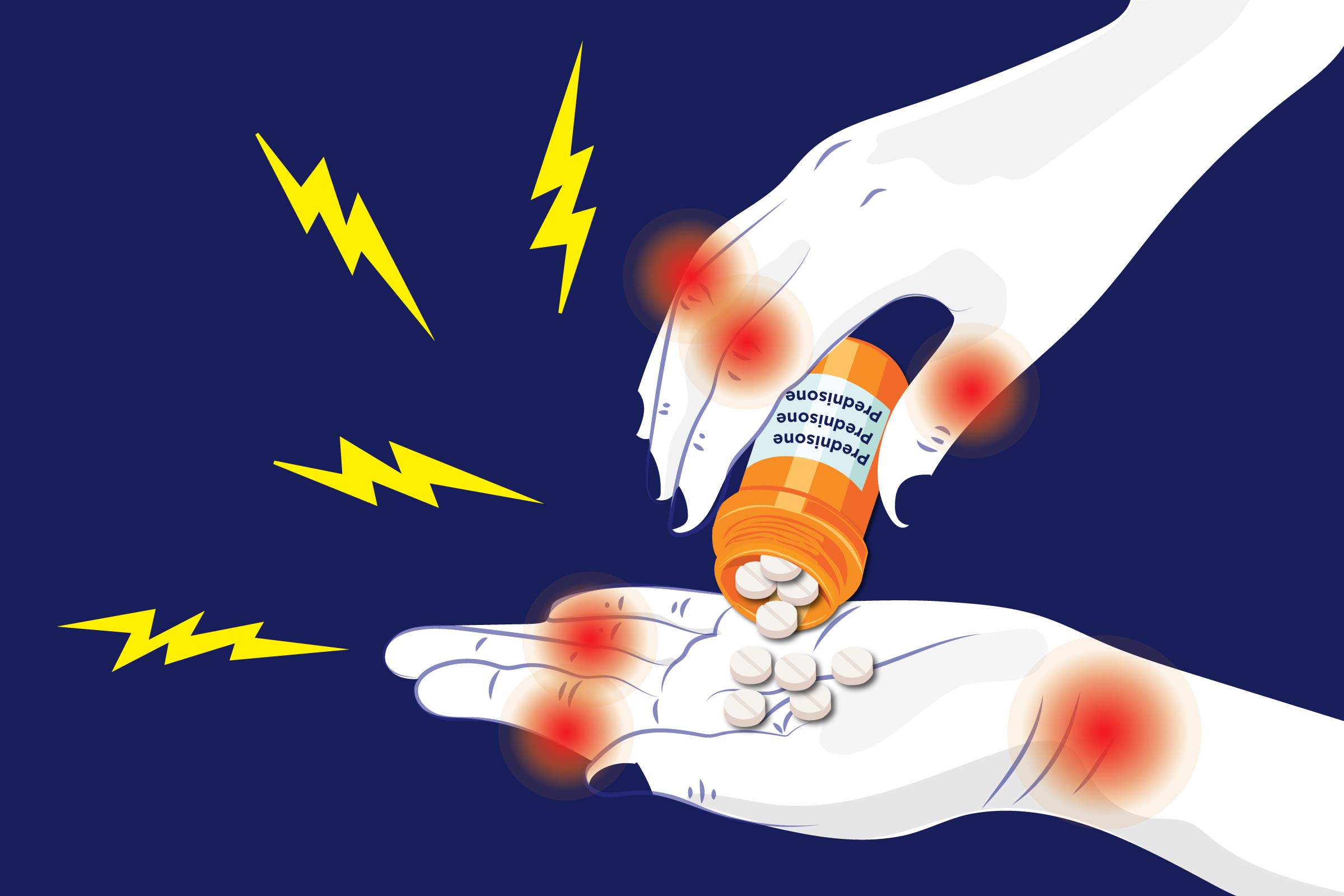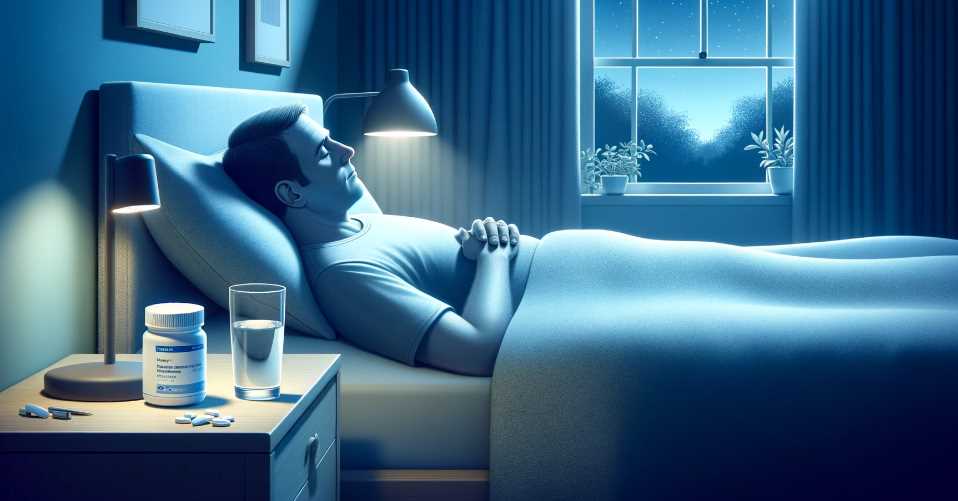Can you take sleep aid with prednisone? Yes, you can take a sleep aid with prednisone. Prednisone is a corticosteroid medication used to treat inflammation, and it should not cause any interactions with common sleep aids.
Prednisone is a corticosteroid used to treat various conditions, and its interactions with other medications can have unpredictable effects. Sleep aids, especially those that depress the central nervous system, may interact with prednisone, potentially intensifying side effects like drowsiness or dizziness.
Can You Take a Sleep Aid with Prednisone? Safety Tips Explained
Conversely, stimulant-based sleep aids might counteract the sedative effects of prednisone. Given these potential complexities, you must consult a healthcare professional who can evaluate your situation and provide personalized advice.
| Parameter | Value |
|---|---|
| Usage | Anti-inflammatory |
| Conditions | Asthma, autoimmune disorders, allergies |
| Administration | Oral tablets, injections |
| Common Side Effects | Insomnia, weight gain, mood changes |
| Precautions | Long-term use may lead to bone density loss, increased risk of infections |
| Interactions | For many drug interactions, consult the healthcare provider |
| Dosage | Varied, depending on condition and individual response |
| Pregnancy Category | Category C (consult healthcare provider) |
| Withdrawal | Tapered withdrawal is recommended to prevent adrenal insufficiency |

Credit: www.amazon.com
Understanding Prednisone And Sleep Aid Medications
Prednisone is a corticosteroid prescribed to reduce inflammation and treat various medical conditions such as allergies, asthma, and arthritis. It works by suppressing the immune system and reducing the production of chemicals that cause inflammation. Sleep aid medications, on the other hand, are over-the-counter or prescription drugs used to help individuals fall asleep or stay asleep. Common sleep aids include melatonin, diphenhydramine, and zolpidem.
What is Prednisone?
Prednisone is a corticosteroid that is commonly used to treat inflammation and suppress the immune system. It can be prescribed to manage a range of conditions, including allergies, asthma, and autoimmune disorders. Prednisone works by reducing the production of substances in the body that cause inflammation, helping to alleviate symptoms and provide relief.
What are Sleep Aid Medications?
Sleep aid medications are drugs used to assist people in falling asleep or staying asleep. They can be over-the-counter or prescription medications and work in various ways to promote sleep. Some common sleep aids include melatonin, which helps regulate the sleep-wake cycle, diphenhydramine, an antihistamine with sedative properties, and zolpidem, a prescription sleep aid that acts on certain receptors in the brain to induce sleep.
Potential Risks And Interactions
It is essential to understand the potential risks and interactions that may occur when taking a sleep aid with prednisone. Prednisone is a medication that is commonly used to treat a variety of conditions, such as inflammation, allergies, and autoimmune disorders. However, it can also have various side effects, including weight gain, mood changes, and difficulty sleeping. Taking a sleep aid medication while on prednisone may interact and exacerbate these side effects.
Some sleep aid medications, such as over-the-counter antihistamines or prescription sedatives, can also cause drowsiness and sleepiness. When combined with prednisone, these effects can be intensified, leading to excessive drowsiness and impaired cognitive function. It is important to consult with a healthcare professional before taking any sleep aid medication while on prednisone to ensure that there are no potential interactions or increased risks.
The combination of prednisone and sleep aid medications can potentially result in increased side effects and risks. Therefore, it is crucial to seek medical advice and carefully consider the potential interactions before taking any sleep aid with prednisone।
Safe Strategies For Better Sleep With Prednisone
Can you take a sleep aid with prednisone? If you are on prednisone and struggling with sleep, there are safe strategies you can try to improve your sleep quality. One option is to consider alternative sleep aids that may be compatible with prednisone. Talk to your doctor or pharmacist about over-the-counter options that will not negatively affect your medication.
Melatonin is a commonly recommended supplement for sleep. Progressive muscle relaxation and deep breathing exercises can also help you relax before bed. Creating a calming sleep environment by keeping your bedroom cool, dark, and quiet is important for better sleep.
Establishing a consistent sleep schedule, reducing caffeine intake, and avoiding stimulants close to bedtime can also make a difference. Remember to consult with your healthcare provider for personalized advice on managing sleep issues while taking prednisone.

Credit: creakyjoints.org

Credit: www.theguardian.com
Can I Take Sleep Aid With Prednisone?
It is generally advisable to avoid combining sleep aids with Prednisone without consulting your healthcare provider. Some sleep aids may interact with Prednisone, potentially causing adverse effects or reducing the effectiveness of either medication.
| Sleep Aid | Interaction | Recommendation |
|---|---|---|
| Over-the-counter (OTC) Sleep Aids | Possible interaction, leading to increased drowsiness | Consult your healthcare provider before combining. |
Why Should I Consult My Healthcare Provider?
Each individual reacts differently to medications, and healthcare providers can assess your specific health situation. They consider factors such as your medical history, current medications, and the underlying condition being treated with Prednisone.
Are There Specific Sleep Aids That Are Safer With Prednisone?
| Sleep Aid | Interaction | Recommendation |
|---|---|---|
| Melatonin | Minimal interaction reported | Consult with your healthcare provider for personalized advice. |
Melatonin is a natural hormone that helps regulate sleep-wake cycles and is generally considered safe. However, individual responses may vary, making it crucial to seek professional advice.
What are the Potential Risks of Combining Sleep Aids and Prednisone?
The combination may enhance sedative effects, increasing drowsiness, dizziness, or impaired concentration. Additionally, there could be an increased risk of side effects associated with either Prednisone or the sleep aid.
Can Prednisone Itself Affect Sleep?
Prednisone can cause sleep disturbances as a side effect, such as insomnia. If you are experiencing sleep-related issues while taking Prednisone, it’s essential to discuss this with your healthcare provider.
Should I Adjust My Prednisone Dose for Better Sleep?
Altering your Prednisone dosage without medical guidance can have adverse effects. If sleep disturbances persist, consult your healthcare provider to explore alternative solutions or adjustments to your treatment plan.
What Precautions Should I Take If I Combine Sleep Aid and Prednisone?
If your healthcare provider approves the combination, take the prescribed doses as directed. Avoid alcohol and inform your healthcare provider of any other medications or supplements you are taking.
Can I Take Herbal Sleep Aids With Prednisone?
| Herbal Sleep Aid | Interaction | Recommendation |
|---|---|---|
| Valerian Root | Potential interaction, leading to increased drowsiness | Consult your healthcare provider before combining. |
Even though herbal sleep aids are natural, they can still interact with medications. It is crucial to inform your healthcare provider about any herbal supplements you are considering.
What Should I Do If I Experience Side Effects?
If you encounter any unusual side effects or discomfort while combining sleep aids with Prednisone, contact your healthcare provider immediately. They can assess the situation and make necessary adjustments to your treatment plan.
Remember, it is crucial to communicate openly with your healthcare provider to ensure the safe and effective management of your health conditions while taking Prednisone and sleep aids.
Conclusion
While it may seem tempting to combine a sleep aid with Prednisone to combat the side effects of the medication, it is important to exercise caution. Always consult with your healthcare provider before taking any over-the-counter sleep aids or other medications alongside Prednisone.
They can provide valuable guidance based on your unique situation and offer safer alternatives to ensure your health and well-being.
